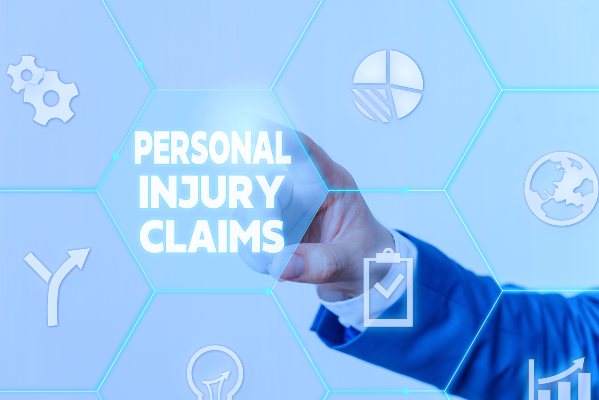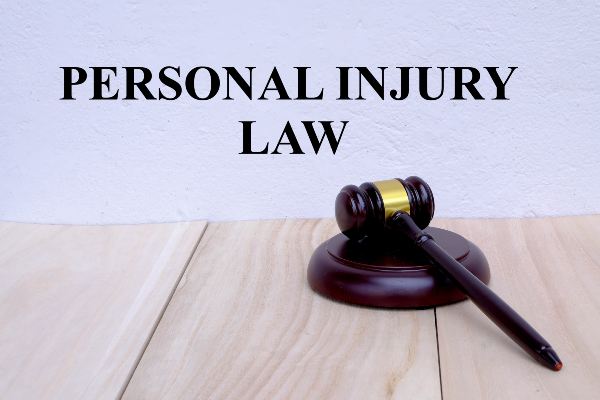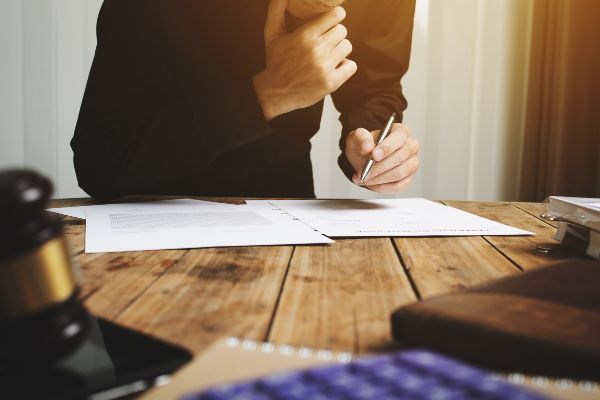Determining who is at fault in a personal injury case usually comes down to negligence. The party that acted neglectfully, i.e. in a manner that a prudent person in the same situation would not have acted, or otherwise considered non-responsible, is the one to blame.
But how do we determine if there was any negligence and that you deserve to be paid for the losses you’ve claimed to sustain.
In this article, we’ll discuss what negligence is, its elements, how it is determined by a personal injury attorney, and how you can improve your chances of proving the liability of the at-fault party.

Okay, just to clarify: in real-life scenarios, lawyers and insurers don’t use this sort of technical language (or jargon) that much (i.e. words like "duty of care," "negligence," "comparative negligence laws," and so on), instead, the conversations are quite general and organic.
You’ll be discussing matters in a pretty natural phrasing, so don’t be intimidated by the terms, they’ve been used here just to clarify the underlying legal concept.
So, what is negligence in personal injury law?
People need to act responsibly in scenarios where their actions can potentially cause damage to others. Responsible behavior in such conditions is not only a “nice thing to do” but a legal obligation because acting recklessly will cause harm to an innocent individual.
However, if a person fails to show reasonable care as a reasonable person would’ve done in the same situation, they would be considered neglectful.
For negligence to be established, these four key elements must be there:
If an individual is in a position, where their actions or inaction can result in bodily harm to someone or otherwise damage them, then they have an obligation to avoid putting others in danger. This is called duty of care and it is owed to other people.
There are two very important questions regarding the duty of care:
For instance, we all know that texting while driving and similar reckless actions are neither okay nor legal because they endanger others. However, there are many grey areas where defining a duty of care is not that easy. For instance, by the law, a store owner must take “reasonable” steps to ensure the safety of their customers.
What steps might those be?
This is where your personal injury lawyers will become relevant.
For instance, in the event of a slip and fall accident, if there was no warning sign to help the customer, then the onus will be on the store owner because they failed to show the level of care that an average person would have.
The injured party, in such a scenario, has the right to sue for premises liability (if the injuries were severe) because the store owner showed negligence.
As mentioned earlier, your need to prove that the legal duty was breached for the person’s negligence to be established.
For instance, in car accident cases, distracted driving, drowsy driving, driving under the influence, speeding, and violating traffic laws are all very common breaches of duty that a driver can commit.
But that’s not all.
The other party can argue that their negligence was not the cause or at least not the primary cause of losses inflicted upon the injured party.
Let’s say, in a car crash, the accuser urges that the accident happened because the other party was speeding. And let’s assume that this was indeed the case: the other driver was speeding at the moment. But if the first party had violated a traffic signal when the accident happened, then their claim for negligence will apart
Thus it is important to establish that the breach of duty was the sole reason or at least the primary reason that the said event/accident happened.
In simpler words, to prove that the accident was solely the responsibility of the other party, you’ll have to prove that only their actions/inaction were the determining factor when it came to the occurrence of the accident.
Had they acted more responsibly, the crash would’ve never happened, or at least, it wouldn't have been as bad.

Lastly, your personal injury lawyer needs to lay down all the evidence of the damages you sustained because of the said accident once the negligence is established.
Your losses will be defined by two types of damages:
The former will encompass all the medical expenses, lost wages, property damage, and special damages, whereas, the latter refers to physical pain, emotional trauma, and loss of enjoyment in life brought upon you by the accident.
The financial compensation for your negligence claim will cover both types of losses, and your lawyer will try to make matters as fair as possible depending on how strong your position is in your case.
This general rule applies to all personal injury cases such as motor vehicle accidents, medical malpractice, defective product liability, and so on.
Now, on to how you can improve your chances at proving someone's negligence.
From the moment an accident happens, your mission is to gather a stockpile of evidence to bolster your narrative. Start from the accident scene: photograph everything, exchange information, seek contact information of eyewitnesses, and so on.
Of course, the quest does not end there.
You’ll have to gather evidence for everything that happens later on as well. Your collection of documented evidence should include your medical records, hospital bills, medical expenses (drugs, therapies, etc.), lost wages, out-of-pocket expenses, property damage, and so on.
Overall, the fact-finding mission will take some time and you’ll have to be patient if you want to win the monetary compensation you rightfully deserve.
All of this evidence is important because it will add credibility to your narrative and allow you to prove the negligence of the other party without a shred of doubt.
The biggest issue at the very beginning of a personal injury case is that no one knows the full extent of it. This is exactly why you should avoid making any statement without knowing what happened and how. Your lawyer will launch an investigation on your behalf to explore the complete details.
The same is also true for the other party who wishes to verify the truthfulness of your narrative. For instance, a trucking company may have thousands of dollars on the line if you've filed a claim against them, it makes sense for them to verify your claims before they offer you a settlement.
Just remember one thing: of all the people in the world, lawyers don’t like surprises.
Be completely truthful and tell your lawyer all that you know from A to Z. Don’t leave any aspect of the event out of your discussion with them.
Let’s say if you’re partly at fault (comparative fault), but the weight of negligence lies primarily on the liable party, you should not hide this detail. Your lawyer should know everything that you know to prove the negligence of the responsible party.
Depending on the severity of your case, it may take your lawyer a couple of months to dig into your medical records and formulate a strategy to help you claim that your condition was caused completely because of the neglectful behavior and not something else (if it truly was).
Once they brush through every detail, they'll tell you how strong your case is.
Our lawyers have dealt with several personal injury incident victims in our rich career. The physical pain and emotional anguish that they have to go through is heart-wrenching for anyone. But we have also seen insurance companies showing indifference towards the suffering of these people.
You must seek legal consultation immediately after such incidents.
This way, you’ll be better able to strategize your approach and demand a fair sum. Insurance adjusters are notorious for using all tactics at their disposal to deny you your rightful compensation, i.e. by drawing doubt to your claims of negligence.

Don’t fall for their trap, hire an experienced lawyer, let them exhaust their cheap tricks and traps, and then claim a fair settlement. If you’re worried about the legal fees and consultation charges then don’t be, because, at the VG law firm, our lawyers work on a contingency fee basis.
No win, no pay – it’s that simple.
Call now to learn more about how you can prove negligence and claim fair compensation for your personal injury case!